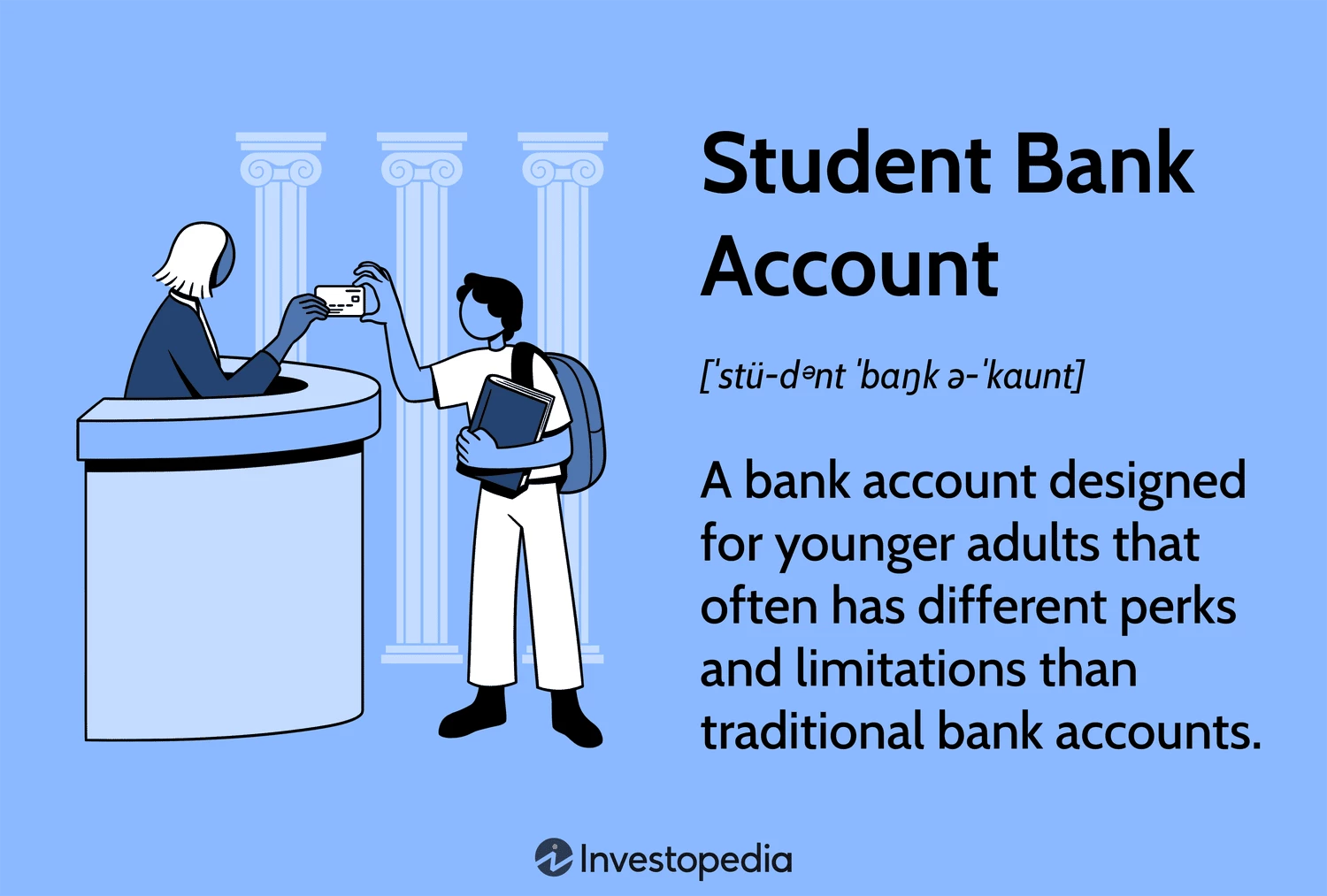Understanding Student Bank Accounts
A student bank account refers to a specialized account, either checking or savings, tailored for young adults typically in their teens or early 20s. These accounts offer specific benefits targeted to students, including exemptions from monthly fees, overdraft fees, and minimum balance requirements, along with the provision of a debit card for checking accounts.
While student bank accounts come with advantages, such as no monthly fees or overdraft charges, it’s crucial to consider potential drawbacks like the necessity of a co-signer. Understanding the features and trade-offs is key in determining whether a student bank account is suitable for you or your child.
Exploring the Benefits of Student Bank Accounts
Student bank accounts offer various financial perks depending on the issuing bank. Here are some common advantages:
- No Monthly Fees: Many student accounts waive standard monthly fees that traditional accounts may levy.
- No Overdraft Fees: Some student accounts do not impose overdraft fees for instances of overdrawn balances.
- No Minimum Balance Requirement: Unlike regular accounts, student accounts often do not mandate a minimum balance.
- Debit Cards: Student checking accounts frequently include a debit card for convenient transactions.
- Small Initial Deposit: Student accounts may only necessitate a modest initial deposit, such as $10 or $25.
- Low or No ATM Fees: Some student accounts offer minimal or no charges for ATM transactions.
Determining Eligibility for Student Bank Accounts
Typically, banks restrict student account access to individuals within specific age brackets, often between 13 to 24 or 17 to 25. Minors usually require a joint account with a parent or guardian, with the primary account holder mandatorily enrolled in school.
Note:
International students studying in the U.S. can benefit from opening a student bank account to avoid foreign transaction fees and facilitate their financial needs while in school.
Pros and Cons of Student Bank Accounts
Different student bank accounts offer unique advantages and conditions. Here are some typical benefits and drawbacks associated with these accounts:
Advantages
-
No Monthly Fees
-
No Overdraft Fees
-
Low or No Minimum Deposit
-
Low or No ATM Fees
Disadvantages
-
Branch Visitation Might Be Required
-
Lack of Interest Rates
-
Possible Co-owners Necessity
-
Account Conversion Post-Graduation
[..]
